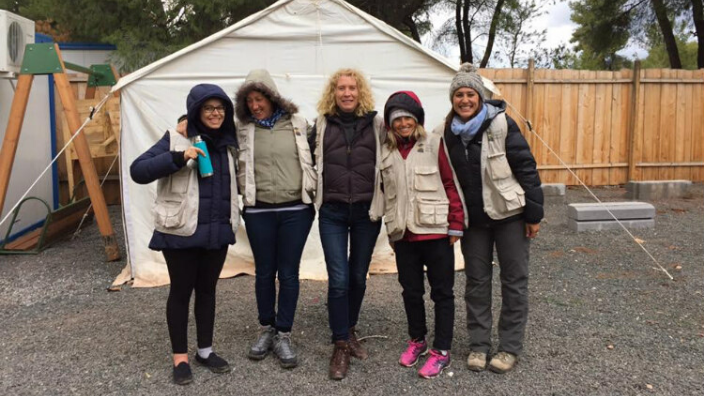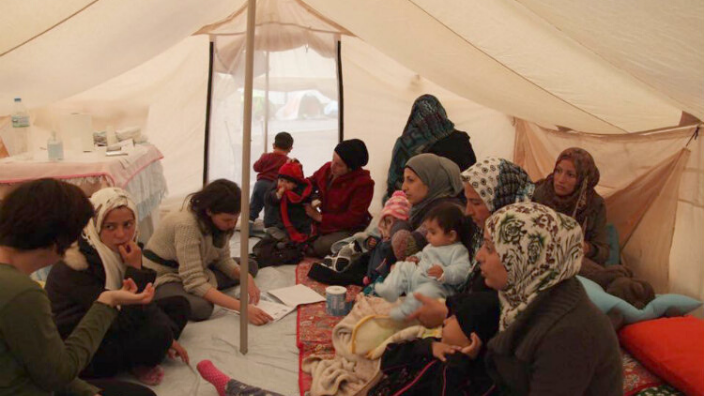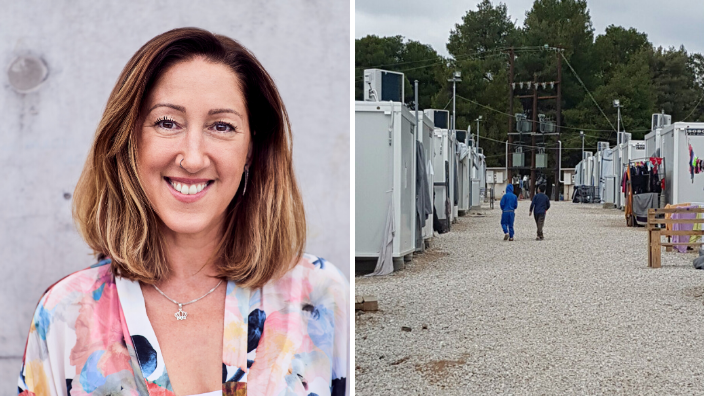By Argyro Vourdoumpa
Volunteers have been at the heart of the migration response in Greece and they have played a vital role in providing assistance during the biggest refugee crisis Europe has seen in decades. Jules Galloway, is one of them.
A little bit over two years ago, Jules, a practicing naturopath, left Australia with a group of 30 volunteers – all of them doctors, nurses, nutritionists, and other allied health workers- to offer her time and expertise in Greece’s refugee camps.
On their arrival in Athens, the group broke up into smaller groups and headed to various refugee camps throughout Greece.
“Our group, organized by Involvement Volunteers International, started in Athens, then made our way up to Ritsona Camp. Later on I went to Chios,” says Jules.
At the time, there were more than 60,000 refugees and migrants in Greece, including about 14,000 on the islands.
Nikolaos Trihas, an expert on volunteers in Greek refugee camps writes that the burden of managing the crisis has fallen “almost exclusively on the shoulders of volunteers and local communities.”

“I was volunteering on the medical and nutrition team, but I ended up doing a fair bit of general volunteering too, especially on the island of Chios. There, we partnered with the Chios Eastern Shore Response Team (CESRT) which was run by an amazing woman called Toula, and they provided clothing, tea/food, English lessons, hot showers and childcare to refugees, as well as being on call to attend boat landings from Turkey,” Ms Galloway told The Greek Herald.
For Jules, volunteering is “the perfect way to see the world and help others at the same time” and a good opportunity to “immerse in the culture,” however she recognises that it can be challenging at times.
“This [volunteering] experience taught me about having compassion for people from all countries and cultures. It taught me that humans are extremely resilient, as we met families living in cold, cramped and unsanitary conditions and that the refugee situation in Europe is extremely complex. Some businesses in Chios were benefiting from the camps being there, but industries such as tourism were suffering.
“Meanwhile, many refugees were keen to move on to other parts of Europe, but their applications were taking months (or even years) to be processed, which meant that tensions were high and many people were frustrated,” she said.
In 2018, Greece received 67,000 asylum applications while the country had the capacity to only process less than one third of that.

As of May 2020, according to the UNHCR, there are still 50,000 refugees and asylum-seekers in Greece, who are expected to remain and integrate in the country by the end of the year. More than 5,000 of them are unaccompanied and separated children.
Wanting to encourage more people to volunteer, Galloway says that volunteering overseas is not only a life experience, but also a way to appreciate the condition of life in our perspective home countries.
“Volunteering overseas gives me an insight into how privileged we are here in Australia, and why we shouldn’t take our lives for granted – it’s a wake up call to live more mindfully.”
